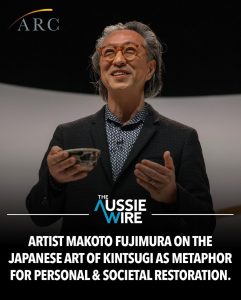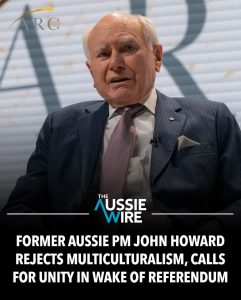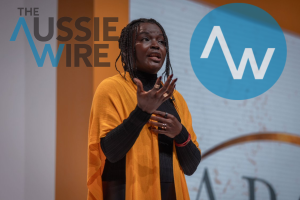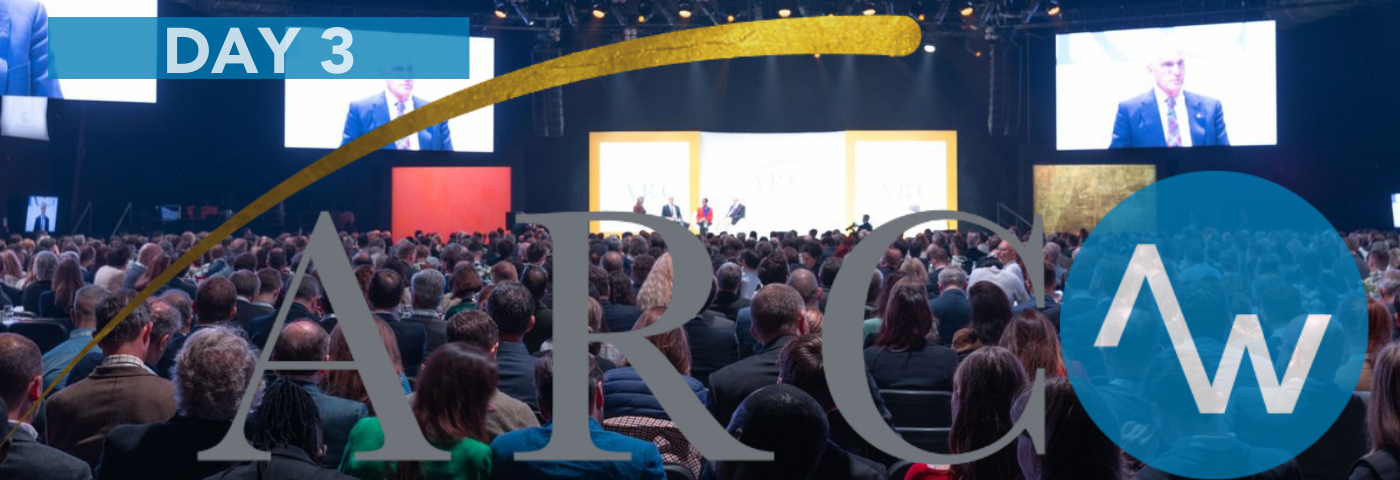The first of November saw the final day of the ARC Forum (ARC conference day 3) and began with a session focused on the pursuit of the good, the true and the beautiful.
Icon carver Jonathan Pageau spoke about the importance of perspective in pursuit of the good, using the pandemic response, and the West’s particular preoccupation with ‘safety’, as an example of how a myopic approach can cause widespread damage. “We sacrificed and subjugated all other goods… that provide meaning and purpose for nearly two years in some places,” he said.
Agu Irukwu, Senior Pastor of Jesus House UK, shared a message about truly making a difference. Drawing on the Biblical parable of the talents (Matthew 25:14-30) and other well-known scriptures, Irukwu implored attendees to “use what we have for the benefit of others,” and to “be salt, and be light…living out Kingdom values.” He finished with a commendation to follow the instruction of Philippians 4:8.
“Finally, brothers and sisters, whatever is true, whatever is noble, whatever is right, whatever is pure, whatever is lovely, whatever is admirable—if anything is excellent or praiseworthy—think about such things.”
Artist Makoto Fujimura spoke about the Japanese art of Kintsugi as metaphor for personal and societal restoration. “We have to start from beholding the broken,” he said.
The Kintsugi master doesn’t just restore what is broken to its original form, but “instead highlights the fractures. They sprinkle gold on top, therefore accentuating the fractures and making something new out of the brokenness. And the broken bowl is even more valuable than the original because it has been through two masters.”

Session 2
In the second session, former Australian Prime Minister John Howard and Deputy Prime Minister John Anderson set out a vision of personal responsibility for citizens, with a view to restoration of the social fabric.
Howard questioned the limits of multiculturalism, stating, “multiculturalism is a concept that I’ve always had trouble with. I take the view that if people want to emigrate to a country, then they adopt the values and practices of that country.” He continued, “We try too hard to institutionalise differences, rather than celebrate what we have.”

Anderson emphasised the need for personal responsibility and the rolling back of the state. “We need a revival not merely of civic rights but of re-engagement by citizens,” he said. “This is my plea to be engaged, to man your station.”
In keeping with the theme of forgiveness seeded by Amy Orr-Ewing on day two, Anderson characterised resentment and hatred as “the two worst emotions” and instead called for “generosity of spirit” in taking up the “radical proposal” to love your neighbour as you love yourself.
‘Britain’s strictest headmistress’ Katharine Birbalsingh, of Wembley School, affirmed the importance of education to societal harmony, saying that “if we want multiculturalism to succeed and tribalism to fail, we must stop ignoring the enormous, crucial power of our schools.” She warned that “the more diverse a school or society, the more difficult it is to make it work… Multiculturalism will fail in our country without small-c conservatism and rules in our schools.”
Birbalsingh said that schools can empower children by teaching them “the values of hard work, perseverance and resilience,” calling for attitudes of “allegiance to nationhood” to be reinstated, adding that “if schools promote BLM, LGBT and various other tribal identities instead of installing an overarching set of small-c conservative values, they encourage children to identify as victims instead of empowering them.”
Session 3
In session three, entrepreneur Magatte Wade, who was born in Senegal, argued for the importance of free enterprise and economic freedom in improving living standards and wellbeing. Wade told the 1,500 strong audience that economic inequality is often blamed on race, but that in fact, “it’s not about whiteness, it’s about wealth.”
Wade said that overregulation and lack of access to capital in African nations has hamstrung economic development. She shared her ambitious vision for start-up cities on the continent, where residents would operate in a freer regulatory and economic environment.

Following, a panel convened by Unherd’s Freddie Sayers and featuring bitcoin advocate and finance expert Robert Breedlove, economist Charles Gave and investor Manny Stotz discussed, well, money.
The speakers were in agreeance that central banks are part of the problem, with Breedlove telling the conference, “The elephant in the room is that we have central planning in the largest and most important market in the world.”
Breedlove stated that “inflation is how the government funds war efforts that people would be resistant to if you just sent them a bill,” arguing that holding your money in bitcoin “is the most effective way of voting against warfare.”
Stotz warned that central digital banking currencies (CDBC) will constitute “programmable money,” with the potential for expiry dates, set uses, and interlinking with social credit. “What this means is it takes away freedom,” said Stotz.
Gave pulled no punches, stating, “the central bankers are a bunch of criminals.”
Kemi Badenoch, UK Secretary of State for Business and Trade, called for the UK Government to scale back the state, and said that ‘safetyism’ needed to be balanced with risk-tolerance.
“We are growing at a much slower rate than we ever have before,” she said, arguing that flagging growth is largely due to a bloated state, and a “fundamental cultural shift” in attitude around ‘safetyism.’ “We talk about risk as if it’s a bad thing rather than something that generates [reward].”
Badenoch observed that “the state itself is doing more than it ever used to do before. We ask the government to intervene in things that it never used to intervene before.” Badenoch argued for “limited government,” warning that, “when you licence a government to step into every situation, what happens when it’s a government that is not of your choosing?”
Session 4
In the final session of the day, and of the ARC conference, Canadian composer Samuel Andreyev spoke about the role of the artist in social change and cohesion before co-founders of the ARC Baroness Philippa Stroud and Jordan Peterson took to the stage (the third co-founder, John Anderson, spoke earlier in the day).
Baroness Stroud said that the conference had been “the beginning of something new”, developing “practical solutions” to problems around energy, society, and governance. Calling on a metaphor offered by Ayaan Hirsi Ali on day one of the conference, Baroness Stroud described Western civilisation as a “cut flower.” Cut flowers die, but we have the seeds of our heritage, which we must water, nurture and grow. She concluded by declaring that the overwhelming message of the conference was one of “hope”.
Peterson ended with a “vision of hope and security” and said that the conference had been part of the process of achieving that. Returning to a key theme of the conference, responsibility, Peterson noted that, “there is no technical difference between thinking about yourself and being miserable. They’re the same thing!” Instead, the path to freedom and fulfillment can be found in serving others. “The burden of responsibility isn’t a burden, it’s the greatest opportunity you could possibly have.”
Peterson became visibly emotional as he concluded with the exhortation that “future is the manifestation of possibility”, and that “we can remember who we are… that’s what this conference was for, to remind people who you are.”
Follow The Aussie Wire Team on Instagram, Facebook and Twitter for on the spot reporting and exclusives. We hope you’ve enjoyed this in depth coverage of the Inaugural ARC Conference Day . Find our coverage starting with Day 1 here.

